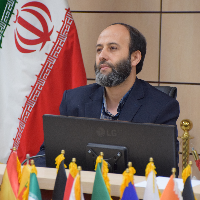A critical study of the reason for Ibn Taymiyyah's "exaltation" about the infallibility of the prophets
What is called "exaltation" in this article is the argument that Ibn Taymiyyah has made in his books about the repentance of the prophets and their innocence from sins. According to this argument, the prophets were not innocent of their sins and always prayed to God for their sins. According to Ibn Taymiyyah, this repentance does not contradict the position of the prophets and does not cause their dignity to be diminished, but such repentance leads to the elevation of their position; Because God Himself has commanded repentance and called Himself repentance. In the present study, attempt to evaluate Ibn Taymiyyah's view on the truth of the prophets' repentance from sins by a descriptive-analytical method and with a critical approach. In the end, it is concluded that his view is inconsistent with such things as: the truth of repentance, the consensus of scholars, and explicit verses of the Qur'an.
-
Rereading the Qur'anic Proofs of Abdul Karim Soroush's View in Attributing Authoritarianism to Islam
Hamed Sajjadi Gugdare*, Mohammadali Vatandust
Andishe-Novin-E-Dini, -
A Critical Analysis of Ibn Taymiyya’s View on the Hadith of Knowing the Imam
, Hamidreza Mohammadi, Seyed Majid Mirdamadi
Journal of Theological Research, -
A critical rereading of Tabatabai's Madrasi point of view regarding the place of debate in the first centuries of Imamia
Mogtba Moradimaki *, , Mehdi Farmanian
Journal of Kalam Pajouhi, -
چگونگی جریان سنت استدراج و هدایت در قرآن با رویکرد پاسخ به شبهات
محمدعلی وطن دوست*، محمد تشکری آبقد
فصلنامه تحقیقات کلامی، بهار 1403




